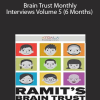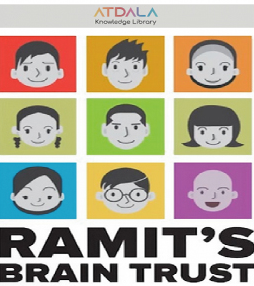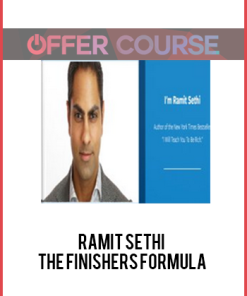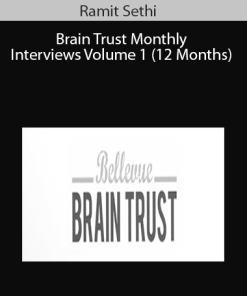Ramit Sethi – Brain Trust Monthly Interviews Volume 4 (6 Months)
$294 Original price was: $294.$59Current price is: $59.
Ramit Sethi – Brain Trust Monthly Interviews Volume 4 (6 Months)
Product Delivery : You will receive a receipt with download link through email
Ramit Sethi – Brain Trust Monthly Interviews Volume 4 (6 Months)
Exactly 10 years ago today, I launched IWT.
When I started, it was a personal blog that nobody read. But I was tired of hearing so-called experts tell us what we COULDN’T do with our money: No vacations…no lattes…no buying anything. In 60 years, you just might have something in savings.
I didn’t believe it. And I bet you and I would rather live a Rich Life than one where we’re constantly trying to cut back on everything. As I’ve said, there’s a limit to how much you can cut back…but no limit to how much you can earn.
This idea of “expanding the pie” — and using psychology to help us live the lives we want — helped us grow this IWT community of hundreds of thousands of people who are unapologetic about wanting to live a Rich Life.
YES! We want more. We want to go out with our friends. We want to take amazing vacations. We want to buy gifts for our family, donate to charity, and live in a nice place.
What an amazing world that we can meet other people who feel the same way.
Back then, in 2004, things were different. I was a frustrated college student.
See, I’d learned about investing and money after taking my first scholarship check, investing it in the stock market, and losing half my money. This was a big turning point for me: I realized if I didn’t learn how money worked, I’d end up the same as everyone else around me.
So after I spent years reading every book I could find, watching every TV show, etc. I developed my own philosophy on money. I wanted to share it with other people and show them that they could use money and psychology to help them lead a Rich Life. The problem was, everyone said, “Wow! I definitely want to learn about money!” Then they never showed up.
More information about Self Help:
Self-help or self-improvement is a self-guided improvement—economically, intellectually, or emotionally—often with a substantial psychological basis.
Many different self-help group programs exist, each with its own focus, techniques, associated beliefs, proponents and in some cases, leaders.
Concepts and terms originating in self-help culture and Twelve-Step culture, such as recovery, dysfunctional families, and codependency have become firmly integrated in mainstream language.
Self-help often utilizes publicly available information or support groups, on the Internet as well as in person, where people in similar situations join together.
From early examples in self-driven legal practice and home-spun advice, the connotations of the word have spread and often apply particularly to education, business,
psychology and psychotherapy, commonly distributed through the popular genre of self-help books.
According to the APA Dictionary of Psychology, potential benefits of self-help groups that professionals may not be able to provide include friendship,
emotional support, experiential knowledge, identity, meaningful roles, and a sense of belonging.
Be the first to review “Ramit Sethi – Brain Trust Monthly Interviews Volume 4 (6 Months)” Cancel reply
Related products
Business & Marketing
Ramit Sethi – Brain Trust Monthly Interviews Volume 5 (6 Months)
Everything Else
Sports & Fitness
Business & Marketing
Personal Development
Ramit Sethi – Brain Trust Monthly Interviews Volume 1 (12 Months)
Personal Development
Joseph Roddriguez – Online Training for Entrepreneurs Bundle
Personal Development
Business & Marketing

 Yänjaa Wintersoul - World Class Memory
Yänjaa Wintersoul - World Class Memory  Dr. Dain Heer - 7 Steps to Orgasm Teleseries
Dr. Dain Heer - 7 Steps to Orgasm Teleseries  Erin Davis, Jonathan Lowy & Patrick O. Dunphy - Advanced Trial Tactics and Strategies for Negligent Gun Sale Cases
Erin Davis, Jonathan Lowy & Patrick O. Dunphy - Advanced Trial Tactics and Strategies for Negligent Gun Sale Cases 











17 reviews for Ramit Sethi – Brain Trust Monthly Interviews Volume 4 (6 Months)
There are no reviews yet.